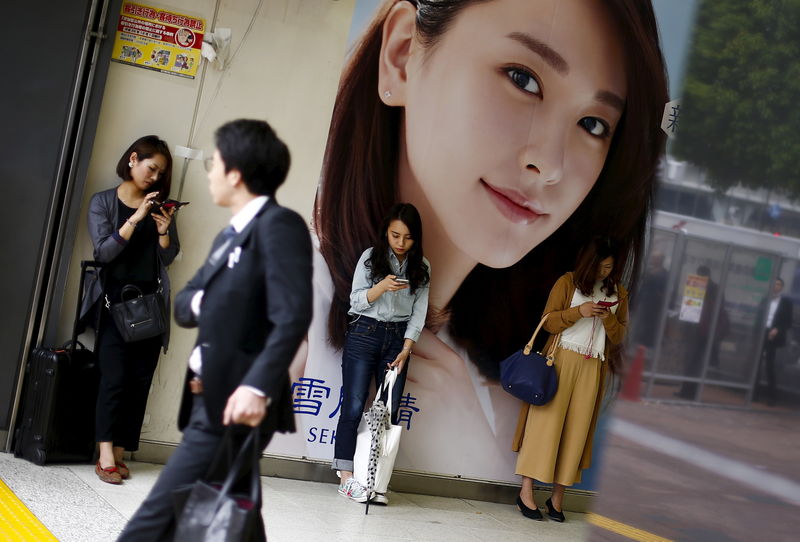(Bloomberg) -- Japan’s inflation edged into positive territory for the first time in 14 months as rising commodity costs fed higher gasoline prices at the pump, according to data that comes before a central bank policy decision later today.
Consumer prices excluding fresh food ticked up 0.1% compared with a year earlier, lifted by a 20% jump in gas prices, the ministry of internal affairs reported Friday. Economists had predicted flat prices overall.
While even the smallest uptick in inflation is likely to be seen positively by the Bank of Japan, price momentum is still far more subdued than in the U.S. and other countries where central banks are starting to project possible rate increases. The BOJ forecasts inflation staying below its 2% target for the foreseeable future, meaning its main stimulus will probably stay in place for years to come.
Key Insights
- “In the past, even when inflation was say 2% in other countries, deflationary pressures persisted in Japan and that trend probably continues,” said economist Takeshi Minami at Norinchukin Research Institute. “Japanese consumers stop buying when prices increase.”
- The BOJ later Friday is seen standing pat on its negative interest rate and asset purchases, while tinkering on the margins of its toolkit by pushing back the expiration of its Covid-era loan programs for businesses.
- A full revival of consumer spending is still a ways off, even though Japan’s vaccine drive has picked up pace in recent weeks and infection numbers have dropped. Some restrictions on business will be held in place after Japan lifts its latest state of emergency this weekend everywhere except Okinawa.
- Japanese price weakness has been exacerbated by some special factors, including cuts to cellphone fees that were advocated by Prime Minister Yoshihide Suga. Excluding the impact of cheaper mobile phone plans, consumer prices may be rising 0.5% or 0.6%, Minami said.
What Bloomberg Economics Says...
“Looking ahead, we expect core inflation (excluding fresh food) to come back to 0% year on year in June, assuming the state of emergency ends on June 20 as scheduled. Beyond that, pent-up demand and higher energy prices could lift core inflation to 0.2% in 3Q.”
--Yuki Masujima, economist
To read the full report, click here.
Get More
- Excluding fresh food and energy, consumer prices dropped 0.2% from the previous year, compared with -0.3% forecast by economists.
- Overall inflation fell 0.1% from a year earlier. Analysts had predicated -0.2%.
(Adds economist’s comments)
©2021 Bloomberg L.P.
